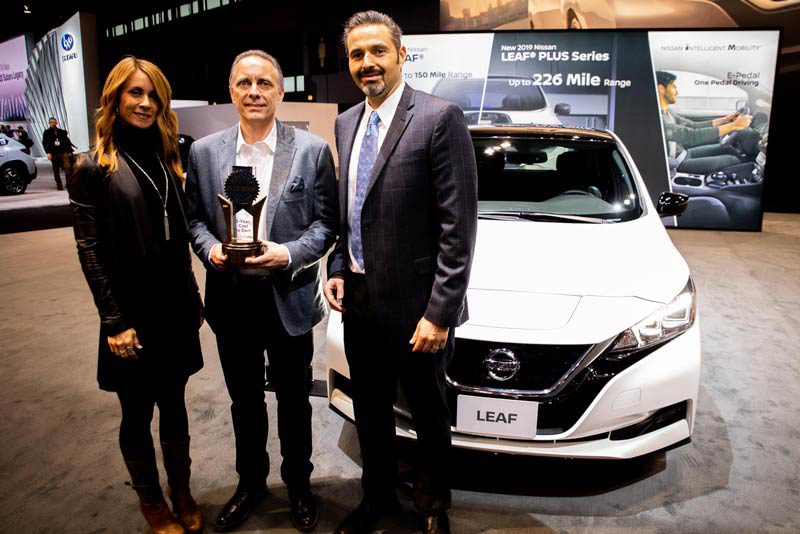The popular Nissan Leaf electric car has been named the electric vehicle with the lowest cost to own in a five year period, taking home a coveted award from US car price guide site Kelley Blue Book this week.
With depreciation, predicted fuel costs, finance/insurance, maintenance/repair and on road costs taken into account, Kelley Blue Book found that the 2019 Leaf with 40kWh battery and 240km real world range was deserving of the “2019 5-Year Cost to Own Award” in the electric cars segment.
The award is vindication for Nissan’s only all-electric car, which is the best selling EV in the world (taking all sales since 2010 into account).
While it has had longevity and high uptake, Nissan has copped considerable criticism from some punters for its lack of battery thermal management and a delay in introducing a longer range battery option.
While Nissan recently announced it would finally be introducing a longer range model with 62kWh, the Leaf 3.Zero, Kelley Blue Book believes the second-generation 2018 Nissan Leaf is still deserving of attention.
“The new Leaf’s 5-year cost to own strengths are many. Leaf pricing now starts under $30,000 (and that’s before you deduct the $7,500 federal EV tax credit) and you get an 8-year/100,000-mile battery warranty,” writes Kelley Blue Book .
(We note that these are US prices and incentives – the Leaf starts at $US29,990 which works out to be $A42,239 in a straight current swap).
Kelley Blue Book says that with all factors taken into account, the 5-year cost to own for the Leaf in the US is $US38,258 ($A53,884).
While many savings are those shared with all electric cars – lower maintenance and fuel costs for example – features like the regenerative braking ePedal of course add to the reduction in running costs.

For Australia, the 2018 Nissan Leaf with 40kWh is now slated to arrive in the mid-2019, and when it does, it will be a welcome addition to a growing fleet of electric cars in the land down under.
Initially expected for the first quarter of this year, Aussies will now have to wait a little longer.
“The biggest issue we’ve had is the Leaf has been so popular in other markets, that means there is a delay for other markets,” Nissan Australia’s corporate communications manager Tony Mee tells The Driven.
Although Nissan can still not confirm a price for the 40kWh Leaf, educated guesses are that it will be priced at around $A55,000 before on road costs, which will place it favourably against the Hyundai Kona Electric which is arriving in the beginning of next month and is expected to cost similar.
How soon we will need to wait for the Nissan Leaf 3.Zero (otherwise known as the Nissan Leaf E-Plus) – and what it might cost – is at this stage an unknown, although it’s larger battery is expected to offer an increased range of around 350km.
It will also have a superior charging rate than the second-generation 2018 Nissan Leaf (which can charge at 50kW on DC), offering instead 70kW charging DC fast-charging, although still keeping the CHAdeMO plug.
This is a shame considering CCS2 is rapidly becoming the standard for charging infrastructure being rolled out globally including in Australia, as Bryce Gaton points out.
Nevertheless, with price of EVs still a barrier for many considering to go electric, the reductions in running and fuel costs are a welcome relief for drivers.

Bridie Schmidt is associate editor for The Driven, sister site of Renew Economy. She has been writing about electric vehicles since 2018, and has a keen interest in the role that zero-emissions transport has to play in sustainability. She has participated in podcasts such as Download This Show with Marc Fennell and Shirtloads of Science with Karl Kruszelnicki and is co-organiser of the Northern Rivers Electric Vehicle Forum. Bridie also owns a Tesla Model Y and has it available for hire on evee.com.au.

